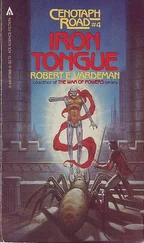She understood all of this much better now. Doctors despised the nurses, but that was not the problem — doctors despised everyone except other doctors, and were trained to do so. But the public despised the nurses, too, and that was the problem. Nursing, Nazareth understood from the histories, had once been an admired calling; there were worlds on which it still was. Nurses had once been called “angels of mercy”… there had even been male nurses. But that was before so many of the nursing functions had been turned over to computers. Once the bedside computers, the healthies, had taken over all the record-keeping, all the decision-making not done by doctors, had begun dispensing all medications and injections automatically, the role of the nurse had gone rapidly downhill. And when the healthies were programmed to interact with the patients and provide even the words of comfort — words that the nurses unfortunately had thought they did not have time to provide — that was the end of the road of prestige.
Now nurses bathed patients, changed beds, fed the helpless, tended sores and wounds, disposed of wastes and other foul bodily excretions, saw to the cleansing of the dead… all the distasteful and unattractive things that are natural to sickness. It was a rare woman now who went into nursing for any reason other than that she needed the money badly, or that some male who had power over her felt that he needed the money. Thus the nurses despised themselves; it was no surprise to Nazareth that they took out on the patients the frustration that was their daily and nightly portion.
Nevertheless, it hurt her that they must add to their usual unpleasant behavior still one more dose of viciousness, just because she was a linguist. It hurt her not just physically — although that did hurt, because they were needlessly rough as they tended her — it hurt her simply because they were women. Women hurting other women… that was ugly. And it hurt her because they were deformed of spirit through no fault of their own and there was nothing whatsoever that she could do to help them.
The doctors would come when it pleased them, of course. They would stay for so long as it pleased them to stay, and leave when it pleased them to leave. She wanted badly to get up and walk in the hall, to distract her mind from the pain of her body, but she didn’t dare. Like washing windows to make it rain, if she left this bed for five minutes she could be certain that the doctors would make their rounds while she was away from the room; she stayed where she was, therefore, and went on waiting.
When they did come at last they were not in a good mood. She had no idea what had caused them to be so cross. Perhaps the stock market had “plunged”… it was forever “plunging.” Or perhaps a patient had dared to question something they chose to say or do. Or perhaps they had wanted pink eggs and hummingbird’s tentacles for breakfast. A doctor needed no reason for his irritation — irritation was his birthright, along with the title now reserved to him alone. No longer were there “doctors” of anthropology and physics and literature to offend the real doctors and confuse the public; they had put a stop to that, as they had put a stop to so many things that were unseemly and inappropriate.
“Mrs. Chornyak.”
“Adiness, doctors,” she corrected them. The smile that went with the words was not for them, but amusement at her own perversity… as if she took pride in bearing Aaron’s name! She had never once corrected any of the government staffers whose principles for system of address consisted entirely of the rule “a linguist is a linguist is a linguist” and called everyone of the lines by whatever name-of-a-linguist happened to be most familiar to them.
“Mrs. Adiness, then. Sorry.”
“Quite all right, doctors.”
“Any problems?”
“No,” she said. “But I have a question.”
They looked at one another, body-parling. WHY THE HELL DO WE HAVE TO PUT UP WITH THIS INSUFFERABLE BITCH? And one of them said, “Well? What is it?”
“Could I be discharged?” she asked.
“Your surgery was when?”
“Day before yesterday.”
“Pretty short time, isn’t it?”
“Laser surgery heals quickly.”
Body-parl again, MEDICAL OPINIONS, YET, FROM THIS USED-UP OLD PIECE… HELL OF A NERVE SHE’S GOT. Nazareth ignored it.
“You think you’re well enough to leave? Then by all means, leave.” The senior man in the pack leaned across her, jolting the bed; she would have gasped with pain except that she would have endured any pain rather than show weakness in front of these elegant specimens. He punched the DISCHARGE stud in the bedside computer, and when the questionmark came up he punched in ANY TIME TODAY.
“There you are,” he said, and off they went, telling her over their collective shoulders that if she had any other questions she could ask the nurses. And Nazareth knew that to be true. She could certainly ask the nurses questions. They wouldn’t answer them if it could possibly be avoided, but she was free to ask. It made no difference to her anyway, now that she had permission to leave.
* * *
The message went through to Clara’s wrist computer, and Clara went straight to Nazareth’s husband. It was luck that Aaron was still in the house; she caught him just leaving, and impatient to be on his way.
“She wants what?” he asked her crossly. “Do speak up, Clara.”
“She’s being discharged today, Aaron,” said Clara. “And she doesn’t want to come back here. Now that she is most assuredly and officially barren… she wants to go straight to Barren House from the hospital. For good.”
Aaron stopped then, his attention captured at last. “Isn’t that a little unusual?” he asked. “Irregular?”
“If you say so, Aaron.”
“You know very well what I mean,” Aaron snapped. “Wouldn’t the usual thing be for her to come back here and spend a few weeks lounging about indulging herself and then move over to Barren House?”
Clara could have told him of many women who had come back from illness or surgery and taken up their lives beside their husbands just as before, and who had remained honored in the Household until they were widowed because their husbands wanted them to remain. But she didn’t bother. Aaron was not capable of feeling as much affection for any human being as he felt for one of the dogs; and he was not capable of feeling any affection for a woman. Had he thought of his mother as anything more than part of the furniture? she wondered. Probably not. There were men like him everywhere, men who felt toward women the kind of ugly prejudice that had once been attached to racial differences… but Aaron was unquestionably the worst example she had ever known. It would be a waste of time to try to break through what Aaron felt toward the females of his species, and she had no time to waste.
“It’s up to you,” she told him. “And to Thomas, of course.”
“Hunnnh.” He stood there, scowling at her as if she had brought great trouble and worry upon him through sheer incompetence.
“What’s the procedure?” he demanded, finally. “Do I have to put it to Thomas formally, or what?”
“I’d recommend that, Aaron,” said Clara, carefully looking at the floor. Or what!
“Is he here?”
“He’s still in his office, I believe.”
“ Damn , what a nuisance!”
“You can deal with it whenever it’s convenient for you,” said Clara coldly. “I’ll notify Nazareth to wait until you have time to attend to the matter.”
“Never mind,” he said. “I might as well get it settled, and then I’ll give you a message for Nazareth on my way out. Keep yourself within reach, would you?”
Читать дальше












